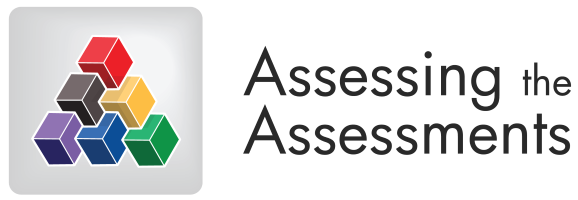Part 1: Why assess?
Outline
The view we need to take towards assessments and learning outcomes represents a paradigm shift in assessment practice. To properly take ownership of the new approach, we need to first make sure we own our foundations: why do we assess, and what are learning outcomes? This workshop isn’t about assessment theory, so we’re not focusing on concepts like diagnostic, formative and summative assessment, but we’ve included some references throughout if you’d like to read more.
Motivating assessment
Colorado College puts it like this:
A little closer to home, The University of Queensland puts it like this:
Farther south, The University of Tasmania references Harlen (2005), claiming:
Take a moment to think about these perspectives: do you agree? Do any or all of these represent how you approach assessment development?
Each claim seems fairly innocuous, but they represent only a subset of perspectives on assessment and are still heartily open to debate. Is this all that’s involved in “successful assessment”? Shouldn’t a “successful assessment” also encourage student learning, help to re-calibrate and direct teaching, even inform curriculum changes? Does a “successful assessment” provide information about educators’ teaching, or only students’ learning?
These are open questions, of course—there’s a wealth of literature on assessment, and different tasks might be directed at different outcomes. Broadly, we might say that the above claim does not deal directly with the idea of the why behind our assessments: developing your own answer to the why assess problem is an integral part of you developing your own personal philosophy of education.
Learning Outcomes and CTLOs
If we’ve established why assessment is important, then we need to establish what should be assessed. With curricula becoming increasingly crowded, this is a particularly pertinent issue! Consider, coming back to our original example:
Remember our pair of third year Chemistry students investigating superhydrophobicity? In the task, they:
- Prepare a set of superhydrophobic surfaces by coating small glass tiles with a series of silicon-based organic polymers.
- Record the contact angle of water droplets on each surface.
- Analyse the differences in hydrophobicity of the different surfaces.
- Evaluate the efficacy of the different coating methods.
As we noted before, this assessment covers a lot of ground. There are a lot of things that could be assessed:
- “Laboratory skills”?
- Use of glassware
- Handling of chemicals
- Safe behaviour
- Risk assessment
- Success in the experiment (generation of accurate results)
- Teamwork and communication
- Record keeping
- Data analysis
- Literature research
- Literature analysis
- Scientific write-up skills
- Microsoft Office skills
- What else?
Not all of that can—or should—be assessed explicitly. If every possible skill and item of knowledge possibly demonstrated here needed to be assessed, we’d run smack bang into the middle of a huge problem in education: curriculum crowding. Determining what should and shouldn’t be a learning outcome in a given assessment, subject, or degree once again speaks to the fundamentals: what does it actually mean to have the knowledge, skills, and attitudes of a chemist?
A shared understanding of learning outcomes is at the core of the educator-learner relationship. Educators communicate what they expect from their students, and learners communicate what they expect to gain from their educational experience. That this alignment be effective is core to assessment practice, though in science especially there is often a gap. When expectations are aligned and properly selected, though, assessment can be powerful, encouraging life-long learning practices and building employability.
But what constitutes a learning outcome? What's the actual point? Again, that's up for debate--why don't you tell us?
As we continue through some educational theory and into our tool for assessing the usefulness and validity of assessment tasks, keep these fundamentals in mind. Why do we--well, really, why do you--assess?
Continue to Part 2.


 Unless otherwise noted, content on this site is licensed under the Creative Commons Attribution-ShareAlike 4.0 International License
Unless otherwise noted, content on this site is licensed under the Creative Commons Attribution-ShareAlike 4.0 International License